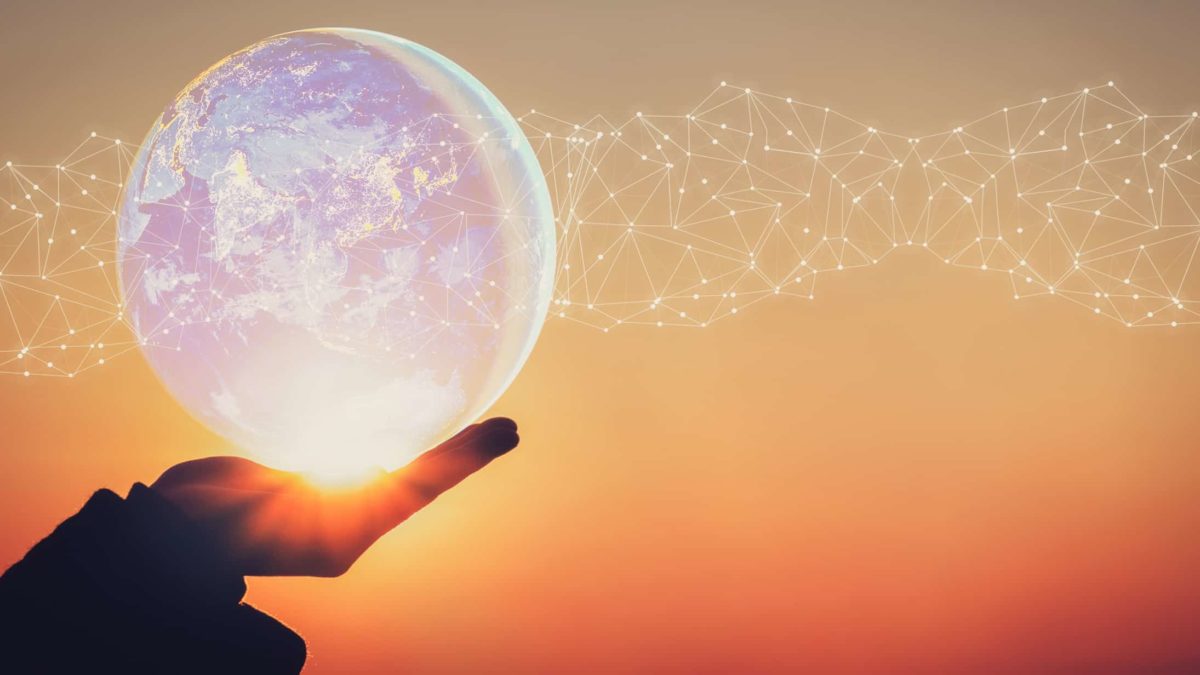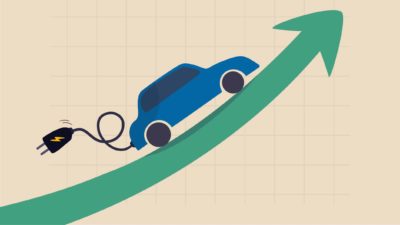This article was originally published on Fool.com. All figures quoted in US dollars unless otherwise stated.
Dr Deepak Chopra is known throughout the world as one of the top experts on wellness, so it might come as a surprise that he has decided to partner with a financial services firm, Personal Capital. However, wellness and finance have more in common than you might think.
Two of our Fool.com contributors, Matt Frankel, CFP, and Jason Hall recently had the opportunity to speak with Dr Chopra on The Wrap. Here's the entire 8 JanuaryFool Live interview – you don't want to miss this.
Matt Frankel: You're obviously a very well-known expert on wellness. But I was surprised to hear you were partnering with Personal Capital on a financial matter. Because a lot of people don't normally make the connection between finance and overall wellness. Would you care to expand what led you to partner with Personal Capital and the connection that you see?
Dr Deepak Chopra: There are many reasons. One is that I have always believed in abundance as a natural experience of life, abundance in all its forms, which means health, relationships. My definition of success is only one thing, joy. If you don't have joy, you don't have success. It doesn't matter how much money you have.
I started my career in this country with nothing, zero. When I came to this country I didn't have a dollar. I got seduced by a culture where you're able to buy things that you didn't need with the money that you hadn't earned to impress people that you didn't like. I realised [laughs] that money was the core source of all stress in the world. I also realised that money is a human construct, just like latitude and longitude, Greenwich Meridian Time, Wall Street.
We made it up. How do we negotiate our relationship with abundance is why I joined this effort to show people that money is very important. But it's how you spend the money, how you earn the money, [laughs] and is it bringing joy to you. If it's not, then it's useless.
Jason Hall: The Motley Fool's mission I think is appropriate to share with you, Dr Chopra. It's to help people be smarter, happier, and richer. There's an obvious connotation for a company that makes a living selling people subscriptions to pick stocks.
But I can tell you it has a deeper meaning for most of us here. I would love to hear your thoughts on talking about finances and wellness and that tension between using finances as a source of abundance versus the things that you were talking about, and how it can be a source of pain and problem. I would like to hear your thoughts about the idea of wealth and richness, and what those terms really mean to you.
Chopra: I've been on the scientific advisory board of the Gallup organisation where we look at well-being in all its different aspects, in all its different buckets. One of the buckets of well-being is financial well-being.
The other buckets of well-being include career well-being, meaning and purpose in your job well-being, social well-being, friends, family, professional well-being, physical well-being, community well-being, and ultimately, emotional and spiritual well-being, which are the most important anyway.
But in that context, if you look at the data on financial well-being, you find that people who are financially secure are the ones who are actually not only making wise decisions in how they save money, earn money, and spend money, but they are also enjoying their money. People who are financially secure, first of all, they have safety. They feel safe. They have insurance, they have disability, they have retirement, they have vacation benefits, and all that. That's number one. They have different mechanisms in their financial management where they don't have money as a source of stress, number one.
Number two, financially secure people spend more on experience than on products. Because it's been realised that you can buy this iPhone 9, and then after six months iPhone 10, and after seven months iPhone 11, and the only difference is the camera. [laughs] I'm sure a lot of you don't even know the difference. People who are wise and secure about money don't spend that much money on products or redundancy. They spend money on experiences, on a vacation, on going out for a night with your family and friends, entertainment, on courses, on seminars, on education, on their children, on their grandchildren, on philanthropy. This gives people much more financial security and also enjoyment from their money. They like to spend money.
They also save money, but they don't hoard it. I know a lot people, for example, who are hoarders. They just hoard, hoard, hoard, hoard. That becomes a source of anxiety, a lot of people who confuse net-worth with self-worth. Depending on the stock market in the evening is everything that is about life, whether they have sex in the evening or whether they go to a restaurant [laughs] or whether they smile or whether they scream at their spouse, all depends on what happened in the stock market. Self-worth and net-worth is totally confused. There's also research that shows that money is an important part of our, what we call happiness experience, but not the most important part.
If you look at what people call happiness formulas, that 50 percent of your happiness comes from your attitude to life. Do you see the world as a problem or as opportunity? Now, that has about to do with how you trade in the stock market. Are you seeing problems? Are you seeing opportunities? That's a very big difference between successful investors and unsuccessful investors. People who are happy have a set point that looks for opportunities instead of problems. The second component is the money itself. If you win the lottery, you'll be ecstatic. You'll be very happy. But after six months, you'll return to your set point, and after a year, you may be actually unhappier because now you're all concerned about taxes and [laughs] all the things that go with money being your identity. Money adds about 12-15 percent of your total happiness experience.
The third part of the happiness quotient, formula, equation is what we call daily personal choices, sum up of personal pleasure: sex, food, entertainment, alcohol, shopping. Do they make you happy? Yes, but only transiently. If you went on a shopping spree, you'll be excited today. Tomorrow you may be regretting. Three days later you may be depressed. But if you find meaning and purpose in your life, if you have the ability to make other people happy, and if you're generous in how you spend money, generosity of spirit, that makes you very happy. That puts money in context, about 15 percent of your daily happiness experience.
Hall: Matt.
Frankel: I want to get back to what you were saying about how people confuse their net-worth and self-worth. One thing that people struggle with a lot, especially on our shows, that we've heard from listeners, is failures when it comes to money. How do you get past failures? For example, if I make a bad investment, which pretty much everyone that's listening has done at one point or another. If I spend money foolishly, not the Motley Fool foolishly, but the bad way, how do you get past that and move forward? How would you advise people to deal with financial failure and move forward in a positive way?
Chopra: I think any failure can be reframed as a learning experience so you don't repeat the same [laughs] mistakes. But you don't say I'm never going to make a mistake again, because if you don't make mistakes and you don't take risks, you're never going to have an adventure, and life should be an adventure. Otherwise, life becomes an algorithm. I think human existence is based on enjoyment. Enjoy. Take risks, make mistakes. Don't make the same mistakes over and over again, that's being a fool. Otherwise, reframe failure as a learning lesson.
Hall: Dr Chopra, can you share some practices that people can use in their daily lives maybe to help find balance or maintain a healthy attitude or maybe reframe those things that can be viewed as struggles?
Chopra: In my daily practice, I have four intentions every day that I start my day with. The first is a joyful, energetic body. If I haven't a joyful, energetic body, I'm good for nothing. The second is loving, compassionate heart. If I don't have that, I'm disconnected from the world. The third is a reflective, alert mind. If I don't have that, I make stupid decisions. The fourth is likeness of being. If I don't have unprovoked joy, then I don't have any connection with my spirit. Those are my four intentions every day.
Now I also know, as a physician, that 95 percent of chronic illness is actually related to inflammation, anxiety, depression, and things like that. I have seven pillars of practice as well-being. Depressed, go to sleep.
Number 1, stress management. Number 2, exercise. Number 3, healthy relationships. Number 4, being very mindful of my nutrition as a basis for a good healthy body. Number 5 and number 6, connected to nature. Number 7, self-awareness.
In that context, I also bring in what I call simple laws of managing financial security, and that is, if you're not an expert, get an expert to deal with it. Then make sure that you have enough savings for a crisis. By in large, ever since I became an intern resident from those days, didn't matter. My salary at one point in 1970 was $202 a month. But I still saved 10 percent of the money because [laughs] my mother said that's what you do, when I was a kid. I never stopped doing that, but it was just $202 a month [inaudible] many times more than that. It's always been there, and it's been a habit. I don't manage money myself, I get professionals to do it.
Hall: One of the things you mentioned there from very beginning talking about when you came to the United States essentially flat broke. You have been both fortunate and through a product of an immense amount of work and effort that you've put in, you've had tremendous financial success. But a lot of our viewers don't know a lot about your background and history. I think it would be really interesting if you could share, and there's things you shared in the books you've written, but if you could share with our audience maybe one or two things that happened financially early in your time in the US that elucidate how mistakes happen and maybe they seem like just big boneheaded things, but then you move forward and eventually they become irrelevant.
Chopra: Yes, when I finished medical school, there was no way to get out of India easily. You had to pass exams, you had to go to Sri Lanka to get an exam done. Foreign exchange regulations didn't allow you to leave India with more than $8. I had an uncle in England who lent me $100, so now I had 108. I thought in India [laughs] that's a very auspicious number. A hundred and eight is almost the holy number. A hundred and eight mantras on the bead and all that, 108, everything is 108.
So I thought I should do something auspicious. I went to the Moulin Rouge in Paris and spent it all in one night, [laughs] champagne and all of that. When I arrived in the United States, I had no money. I landed in JFK. Those days we didn't have cellphones or anything, I made a collect call to the hospital, which no longer exists. It was a run down, what do you call it? Community hospital in Plainville, New Jersey, with a lot of violence and very rundown place, run by the mob. I didn't know that before I arrived there, I said, "I don't have any money, can you pick me up?" I call the hospital, they were so desperate they sent me a helicopter. [laughs] So my first experience of the United States is lifting off a helicopter, JFK.
I thought this must be Disney (NYSE: DIS) World or if it isn't Disney World, [laughs] I guess Disney World is even better. Fifteen minutes later, I was in this little place called Plainville, New Jersey. Went to the emergency room, got totally involved there, after 24 hours, totally exhausted. Went to Main Street, stood outside the television store, because I'd never seen television in my life. When I came to this country, there was no TV in India. This was a colour TV, and I was fascinated and the salesperson came out, he said, "You like that?" I said, "Yeah." He said, "Why didn't you buy it?" I said, "I have no money." He said, "What do you do?" I said, "I'm training to be a doctor." He said, "At the hospital?" I said, "Yes." He said, "Oh, come on in doc, all you have to do is sign this yellow piece of paper, and you can have the TV set."
I walked out with the TV set, not realising there were 10 TV sets in my dorm. [laughs] I'd signed off months salary [laughs] over this TV set. But it didn't bother me. Next day I worked again 24 hours in the emergency room. Then I went to an automobile place. It was a Volkswagen dealership. I asked of the manager, I said, "Do you have that yellow piece of paper that I can sign because I'm a doctor and I want to drive that car over there?" I drove out, and $50 down-payment, I drove in a Volkswagen Middle out of the agency. I thought this is heaven, you don't have to spend any money. You can spend any amount of money even though you haven't earned it.
Then I got into this rat race of stress, which is basically the cause of illness in our society. Ninety five percent of illness is directly or indirectly related to stress. Money is a huge stress in people's lives other than health of course, and personal relationships. But they're all entangled. You need money to have a comfortable life. You need a comfortable life to have healthy relationships. It's all entangled with the rest of your life.
Hall: From a few of your interviews that I've viewed online before, I know that your personal mindfulness practice, your meditation, you spend several hours a day on those personal things, and a lot of people just don't have the time between work and family and managing those responsibilities. I'm just curious if you could offer some ideas or tips. I know you have a process called STOP that's not directly related to that, but we want to hear about STOP. But also I really want to hear about some ideas you have for people to develop practices that they can make part of their daily habit and routine to help them achieve some of these emotional well-being mechanisms that are so important. They're so tied to so many parts of our life.
Chopra: Well, the simpler practice like stop is, STOP is anytime you're stressed, you STOP. It's an acronym, S stands for stop. T stands for take three deep breaths and smile from your head to your toes. O, observe what's happening around you and inside your body, and P, now proceed with awareness, compassion and joy. That's the STOP formula.
The second is before you make any choice, you can ask yourself a question, "Is this going to bring joy?" If the answer is yes, go for it. If the answer is no, don't do it. [laughs] All it needs is a little self reflection. That's all it needs. A little pause, press the pause button, ask a question, and make sure the response, whether it's a sensation, an image, a feeling, a thought, an emotion it doesn't matter. Every question you'll get a response. All you have to do is ask yourself the question, [laughs] but quieten your mind a little bit. Now, having said that, you say a lot of people have made a lot of money this like the other, but in my tradition also, in the different stages of your life, different things are important.
So for the first 25 years of your life, education is the most important thing. Period. Second 25 years of life, success in the way the world defines success. Progressive realisation of worthy goals, and climbing up the ladder of payment fortune, if that's what you want. That's the second phase of life, and you pay attention to that. Which doesn't mean you don't pay attention to the other aspects of life, but that becomes more important. The third phase of life, which is the third 25 years, so I'm 74 chronologically, although biologically I think I'm 35.
But as you get to 75, [laughs] between 50-75, that phase of life, you pay attention to giving back, to philanthropy and helping others get successful. Then the fourth 25 years of life, ideally speaking, you should live for about 100 years and die in peaceful meditation by choice not because you have a sickness, the fourth 25 years of life, which is what I'm entering right now in the next phase, is you explore reality beyond all these human constructs of money and old age, and infirmity and death. You explore what the heck is going on? Why is there existence? Why, [laughs] why do we exist?
Frankel: We know you're an incredibly prolific author, you've had over 90 books published, including a number of best sellers. First of all, I know there are at least a few people listening who have not read any of your books. If they wanted to learn more about what you are all about, your practices, what's the one that you would recommend that they start with? That's my first question. Go ahead
Chopra: The book that anyone can start with is called The Seven Spiritual Laws of Success. It's a very small book. It's my most popular book. It sold 30, 40 million copies ever. Anybody can relate to it, whether they are a teenager or an old person.
Frankel: The other thing I am curious about, are there authors and books that you read? Who's influenced you? What's a book you've read recently?
Chopra: Well, I'm reading actually a book right now, it's on my desk. It's by Frank Wilczek, who was a Nobel laureate, winner of the Nobel prize in physics. It's called Fundamentals: Ten Keys to Reality. That's the kind of book I enjoy reading. I'm reading this book. What is Science? I read a lot of books on spirituality and science and see where the two come together. My favorite authors are people like Jay [inaudible] . Then I have some romantic old novelists like [inaudible] and [inaudible] and many others.
Hall: That's great. I think being broadly read is a valuable trait, no matter what's your discipline is professionally or whatever you are trying to accomplish in life. I really appreciate that, Dr Chopra. We normally try to do Q&A. We didn't really open up our Q&A because we weren't sure how much time we would have, and we wanted to focus on hearing from you. But I do have a few things in our Slido chat that we use that I wanted to share with you. The first one is from one of our viewers who identifies as Oni, and Oni says that, "Deepak was instrumental in helping me through my wife's terminal illness." I wanted to share that with you. Thrive has one here. Actually, before I read that one, I want to ask you again, Avery Pemberton Smith is asking, "If you could, could you go through the 12 pillars once again?" Then we can put those in our chat for people to grab.
Chopra: Seven pillars.
Hall: Pardon me, seven pillars.
Chopra: Deep rest, as in sleep, good sleep, number 1. Number two, managing stress and stress could be managed through meditation, mindfulness, music, poetry, entertainment, comedy, massage, so many things that we don't take time to do. Whenever I used to be stressed as an intern, I would watch Candid Camera to manage stress. Third is exercise, but to add that, I add mind-body coordination, with breathing techniques and yoga. That's third, because mind-body coordination combined with exercise is much more effective. So let's say exercise. The fourth is emotions and emotional resiliency, but particularly paying attention to compassion, empathy, love, kindness, joy, and equanimity, fourth. Number 4 is nutrition. A diet that has maximum diversity of plant-based foods. That is organic and is not toxic, and actually decreased inflammation of the microbiome, which is the genetic population in your body, which is mostly bacteria. That would be nutrition, that would be five.
Six would be biological rhythms. The biological rhythm that we're most familiar with is circadian rhythm. When people have jetlag, for example, that's disruptive, but we have many biological rhythms, including seasonal rhythms, we have attentional rhythms, lunar rhythms. You can get yourself grounded and restore biological rhythms anytime you have interaction with nature, even walking barefoot on the ground, or on the beach, or on the grass will restore your biological rhythm. It's called grounding. The seventh is self-exploration or self-awareness, which is asking yourself, basically, who am I? What do I want? What's my purpose? What am I grateful for? What is life all about?
Hall: Thank you for that. I have two, if you have another couple of minutes, we're coming up on the half-hour mark. Thank you. The first one, Thrive asking, I think this is just really relevant to our audience. Thrive is saying, "I have followed your work for many years and participate in your meditations. During my daily contemplative practices, I have struggled with adding thoughts about money to that time, so I focus on intentions and what I will do with resources. What's a better way of approaching this?"
Chopra: Redefine your idea of success. Success is the progressive realisation of worthy goals. What are you passionate about? What's your PHD? PHD stands for passion, hunger, and drive. What is your passion? What is your hunger? What drives you? Then go do it and you'll make all the money you want. Find out what your unique strengths are, find out who is in need of them, and then go serve that strength for the betterment of the world.
Frankel: Right. A final one and then we will let you go. Let me see. Lynn asks, just to reiterate what you were saying before, "Money is 12 percent, daily choices are 15 percent. What are the other ingredients again?"
Chopra: Money? No. The first is 50 percent, which is your attitude, is, are you looking at life as a problem or life as an opportunity? Everything that happens, 50 percent is attitude. Twelve to 15 percent is money. The third is the choices you make. That's another 40 percent. Personal choices, which give you some joy. But then the other choice is called fulfillment, which is making other people happy by giving them attention, affection, appreciation, and acceptance. Finding meaning and purpose in your own life. That's actually the totality of experience.
Hall: I love thinking about it that way. I really do. There's the quote that, "You can't control what happens to you, but you can control your attitude and how you respond."
Chopra: Yeah. By the way, the key to life is how to respond in the present moment to what is happening. That's it. The meaning of life is a conscious response to what is happening now, that's it.
Hall: Thank you so much, Dr Chopra. Do you have any last words to share with us? I think that's a good way to end, unless you have having anything else you'd like to close with.
Chopra: My last words would be, if you come to my grave, and there won't be a grave because I don't have any bones. I will be a bunch of ashes. But what you should see and feel is only one thing, take it easy.
This article was originally published on Fool.com. All figures quoted in US dollars unless otherwise stated.









